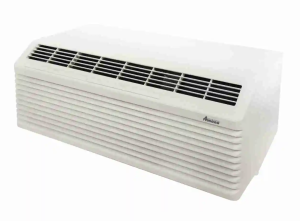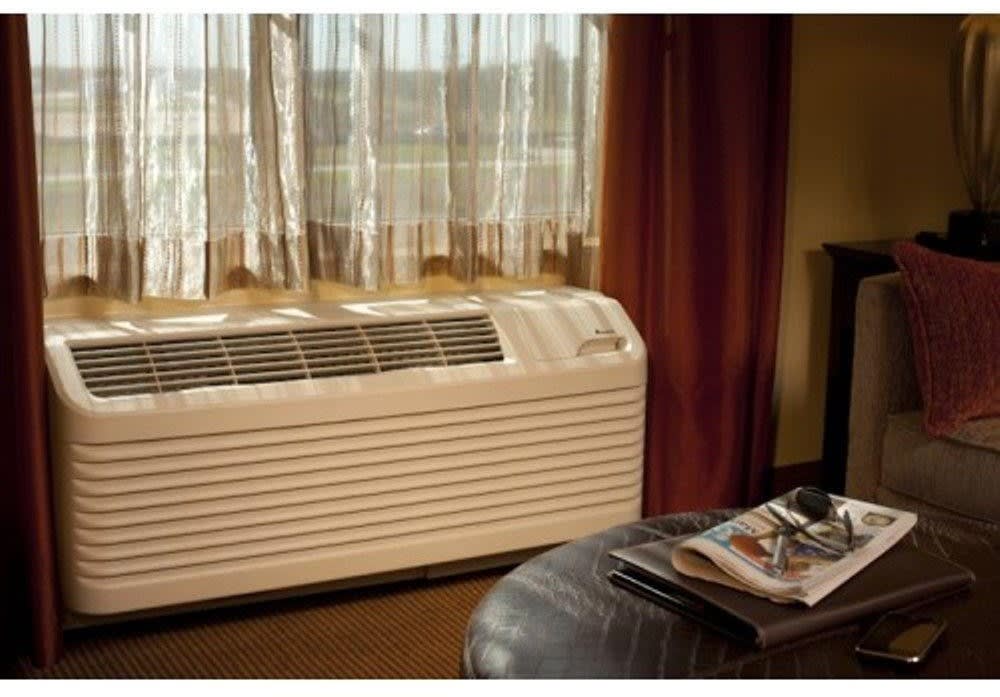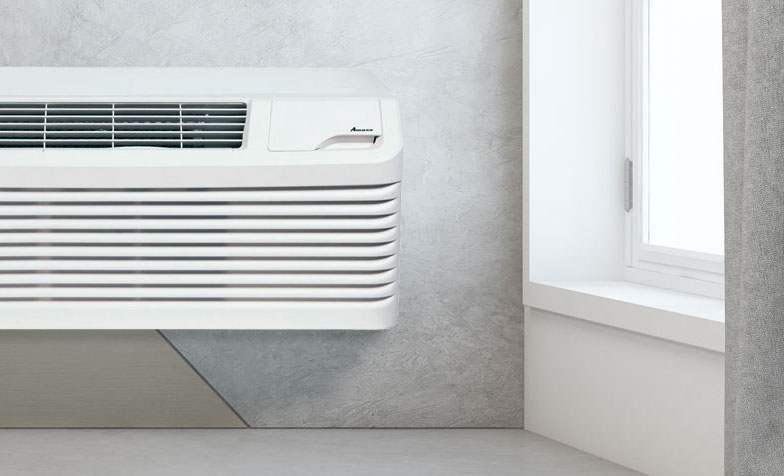

While all PTACs cool a room the same way, there are two different types of PTACs, and they heat rooms in two distinct ways:
1) Via Heat Pump
2) Via Resistance (Electric) Heat
Heat Pump – Heat pumps work in a similar manner to an air conditioner; except they reverse the cooling process to circulate warm air instead of cold air. Electric Heat PTACs / Resistance (Electric) Heat – In contrast to heat pump PTACs, resistance (electric) heat units work by passing an electric current through wires to heat them.

The answer depends on where you are and what the climate is like where you are located. There are several factors to consider vis-a-vis initial investment and energy use over time. Resistance heat units require a smaller initial investment but can result in higher energy costs when used for prolonged periods of time. Heat pumps use less energy than resistance heat models but require a larger initial investment. All packaged terminal heat pumps also incorporate resistance heat technology that can help maintain room temperature when the outside temperature drops below the minimum operating threshold for a heat pump. This is an important factor to consider when choosing between heat pump and electric heat PTACs for your business as a hospitality establishment or for personal use at home.
Regardless of the intention of your purchase, heat pumps are suggested for cooler climates where the need for heat is greater; you should see a return on the initial higher investment of a heat pump PTAC unit in about a year. All climate zones within the U.S. will realize some energy cost savings by choosing a heat pump model, but the payback will vary by location (as shown by the map below). Looking for the best options of hotel PTACs / ACs?
Check out our list of the Best Hotel PTACs / ACs 2024.

Loud sounds from PTAC units can affect the guest experience. Here are 7 things to take into account to avoid noise complaints with PTACs...

Searching for the best PTAC for your hotel or hospitality business? Here are the top of the line brands and models for your property.
Fill out the form below to request more information.

